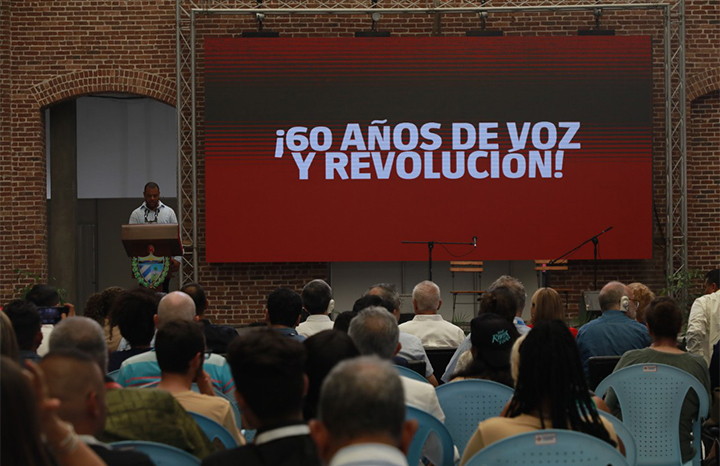
HAVANA, Cuba, Oct 20 (ACN) Under the slogan that information is a battlefield and coordination is the only viable strategy, the panel "Experiences of Coordination for Another Possible World" raised on Sunday as the theoretical and practical heart of the 1rst Granma-Rebelde Festival.
The meeting, beyond a mere exchange of experiences, functioned as a platform for collective intelligence where social movements from Cuba, Spain, China, and Turkey dissected the hegemonic model and presented their concrete practices of self-management, with popular power and counter-hegemonic communication as central axes.
Arlin Alberty Loforte, director of Granma Internacional, emphasized in her introductory remarks that the festival and Granma itself are not only media outlets, but "tools of political coordination and pedagogy."
Their work, she noted, is to build bridges between struggles, make visible the alternatives that global media power obscures, and turn information into a nutrient for popular organization.
The panelists explained how, through concrete journalistic practice, community actors, academics, and social movements come together to document, systematize, and spread experiences of self-management in Cuba.
Jose Luis Centella, Secretary General of the Communist Party of Spain, focused on the struggle for the common good in the face of neoliberal dismantling and recounted experiences of sovereignty building in vital sectors, such as community health models, which defend the right to life against commodification.
For his part, Kemal Okuyan, Secretary General of the Communist Party of Turkey (TKP), emphasized the importance of ideological unity and political formation to confront the propaganda of imperialism and fascism. "Articulation without a clear compass is a ship adrift; our battle is also for consciousness, to demonstrate that there is a scientific and organized alternative to capitalism," he noted.
At the same panel, Li Zongyuan, secretary of the Communist Party of China (CPC) Committee and director-general of the CPC History Museum, offered a vision of socialism in the 21st century and highlighted the role of historical education and the preservation of memory as fundamental tools for the unification of a people.
"Understanding past struggles cements unity in the present and projects security for the future. Our unification is based on a political identity forged over 100 years of collective effort," he explained.
The debate concluded with a tacit consensus: although the battles are diverse, whether for water in Spain, land in Turkey, technological sovereignty in Cuba, or national integrity in China, there is a growing awareness of the need for unity.
The panelists made it clear that unity in diversity is emerging as the fundamental strategy for confronting the common enemy: a capitalist system that plunders resources and fragments people.
Emancipatory communication, concrete internationalism, and the construction of self-managed popular powers are the pillars of this strategy. Granma-Rebelde found in this panel a vibrant example that another world is not only possible, but is already being sown and built through the arduous and fruitful work of organized peoples, who have made words, history, and collective action their trenches.
Sidebar

 Agencia Cubana de Noticias
Líder en información nacional
Agencia Cubana de Noticias
Líder en información nacional








Nos reservamos el derecho de no publicar los comentario que incumplan con las normas de este sitio